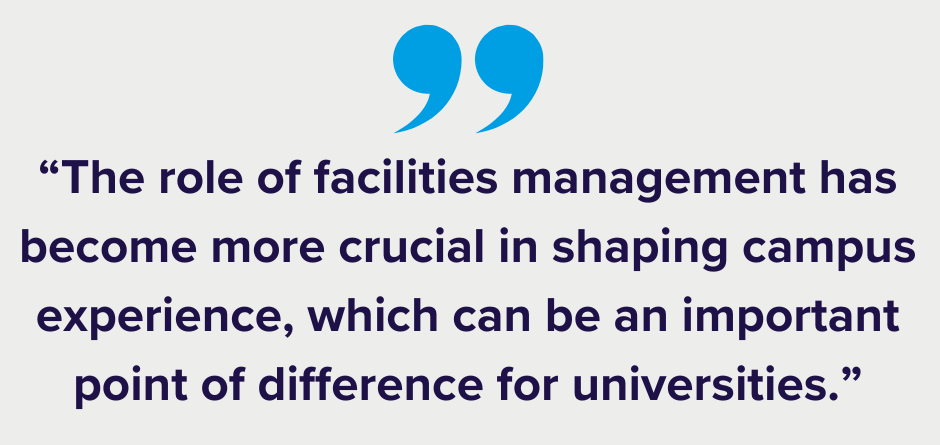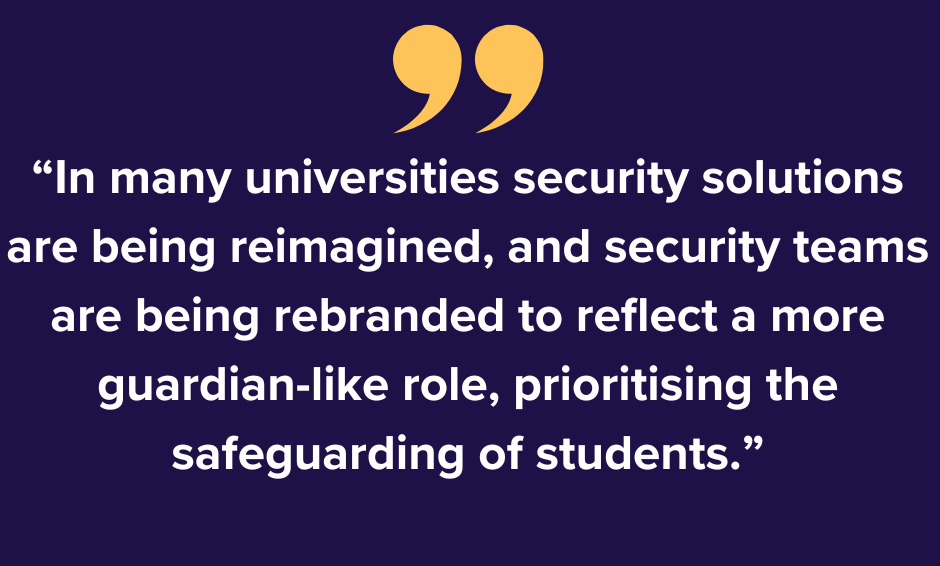In an exclusive interview with FM Director, our CEO, Declan Doyle, shares his inspiring journey and discusses how innovation, sustainability, and great people are at the heart of our business. He also highlights how our commitment to creating safer, healthier communities is transforming the way we work across the UK and Ireland.
It’s a great article and a must-read for anyone interested in our business or industry!
Read it here: https://issuu.com/fmbdmedia/docs/fmdsept24
Expertise
Ethical Procurement and Sustainability: A Q&A with Gurjeet Parmar, Group Procurement Manager at Bidvest Noonan
We sat down with Gurjeet Parmar, our Group Procurement Manager, who joined us in 2023 and is based in our London office. Since joining, Gurjeet has made a significant impact and today she is an integral part of our excellent procurement team.
Gurjeet brings a wealth of experience to her role, having worked with a diverse range of companies, including large, well-known multinationals. We were keen to hear about how she incorporates Environmental, Social, and Governance (ESG) principles and promotes diversity within our supply chain, alongside her contributions to our thriving procurement team.
What does ethical procurement mean to you, and why is it important for companies?
Ethical procurement is fundamentally about ensuring that the goods and services we purchase are sourced in a way that respects human rights, supports fair labour practices, and protects the environment. It’s a holistic approach that integrates social, economic, and environmental considerations into our procurement decisions.
For companies in the UK and Ireland, it’s more than a legal obligation; it’s also a moral one. It’s about avoiding harm and actively contributing to positive change.
We need to make sure that our supply chains are free from exploitation and that we’re supporting practices that contribute to a better world. Beyond preventing the exploitation of people, we also have to ensure that we prevent the exploitation of the planet to protect the environments we all depend on.
It’s the right thing to do and it’s good for business. It enhances our reputation and builds trust with customers and stakeholders, who increasingly demand that businesses operate responsibly and ethically.
You mentioned preventing the exploitation of both people and the planet. How can we ensure that child labour and modern slavery don’t exist in our supply chains?
We take a very proactive approach. First, we conduct thorough due diligence and regular audits of our suppliers. This helps us to identify and address any risks of child labour or modern slavery. We also do random checks and have very strict onboarding processes to make sure our suppliers know what’s expected of them. Beyond preventing the exploitation of people, we also have to ensure that we prevent the exploitation of the planet to protect the environments we all depend on. This means advocating for sustainable practices throughout our supply chain.
Can you share some of the new or ongoing initiatives that you’re working on to make your procurement more sustainable?
There are so many exciting initiatives happening across our business, its on everyone’s agenda and the pace of positive change is truly incredible. To mention just a few, we’ve introduced a range of products like biodegradable detergents and hand towels made from recycled materials. We’re also reducing our carbon footprint by designing smaller packaging, which allows us to transport more products in fewer shipments. I’m sure many people know about the amazing technologies our innovation team has helped us introduce that enable us to reduce emissions and cut our consumption of resources such as energy and water.
Another significant initiative is our programme for recycling old uniforms. We partner with suppliers to convert these uniforms into usable materials, preventing waste and supporting our commitment to sustainability. These efforts are just a glimpse of the many ways we’re working to minimise our environmental impact and promote responsible resource use throughout our operations.
How do you encourage diversity and inclusion among your suppliers?
A diverse supply chain is crucial for fostering innovation and ensuring fairness. Our Environmental, Social, and Governance (ESG) team has done outstanding work in driving this initiative forward. We’re hosting Diversity Supplier Days to engage with suppliers from various backgrounds, including those owned by women, minorities, veterans, LGBTQ+ individuals, and people with disabilities. We’ve set specific targets to increase the number of diverse suppliers we work with, and we’re committed to supporting them long-term. It’s about creating an inclusive environment where all voices are heard and valued.
Finally, what advice would you give to other companies looking to begin their journey to ethical procurement practices?
My advice would be to start with clear policies and standards, and make sure everyone in your supply chain understands and adheres to them. Regular audits and open communication are key to maintaining these standards. Also, look for ways to support sustainability and diversity in your procurement practices. It’s not just good for business but also for the community and the planet. And remember, it’s an ongoing process—there’s always room for improvement.
Balancing Security with Community
In the article below, our Business Development Director, Adrian Canale, shares his insights on how to strike the right balance between security and community engagement.
London is renowned for its vibrant and dynamic public spaces. The city is home to some of the most exciting and diverse mixed-use environments that blend residential areas, offices, retail outlets, and cultural hotspots. When designing security solutions for these spaces the primary challenge lies in establishing robust security measures that do not detract from the welcoming and open atmosphere these areas provide. The goal is to ensure the security, safety, and well-being of everyone, from residents and commuters to tourists, without imposing an overbearing presence.
Designing effective security solutions for busy public spaces is intricate work. The foundational approach begins with a comprehensive assessment of the assets requiring protection. This encompasses not just the physical property but also the intangible elements like the area’s ambience and the customer’s brand.
The next step often involves a thorough analysis of potential threats. This includes identifying both internal and external risks. Threat identification is an ongoing process, benefitting from strong platforms and highly networked teams who can use data to develop intel for advanced warning of potential threats. It is important to be ahead of the curve in this area. An in-depth understanding of all threats allows for the quantification of their potential impact, guiding the development of responsive and proactive security strategies.
Central to the design of these security solutions are three key pillars: people, procedures, and technology. By harmoniously integrating these pillars, security solutions can be crafted to provide comprehensive protection while maintaining the unique character of the spaces being protected. The goal is to create a robust and multi-layered security solution, capable of adapting to the evolving needs and challenges of these dynamic environments. There are many additional considerations when designing solutions for public spaces.
Public spaces are melting pots of individuals, each with distinct needs and expectations and embracing inclusivity in these spaces has become a cornerstone of modern security solution design. This means designing measures that cater to all, ensuring everyone feels safe and acknowledged.
In this context, security solution designers increasingly call on security personnel to adopt roles that go well beyond traditional duties. They are asked to perform as ambassadors and customer service representatives, trained not only in security and safety procedures but also in skills such as empathy, communication, and cultural sensitivity.
In a city as diverse as London, communication barriers can be a significant challenge. Training and careful recruitment can help bridge the gap and there are many small and simple steps teams can take to improve their accessibility to the public. For example, some of our security teams wear ‘language flags’ on their uniforms. These small, embroidered patches indicate the languages an officer is fluent in, thereby inviting non-English speakers to communicate in their preferred language. This simple but effective tool not only eases communication but also demonstrates a commitment to inclusivity.
The scope of health and safety in modern security has expanded significantly, encompassing advanced medical training, and enhanced rapid response capabilities. This evolution reflects a broader responsibility of security teams, not only in preventing and addressing security incidents but also in responding effectively to health emergencies.
Security personnel are increasingly equipped with medical training that goes beyond basic first aid. This includes specialised courses such as First Person on Scene Intermediate (FPOSi), which provides them with the skills to manage a range of medical conditions and trauma-related injuries.
This advanced medical knowledge enables security teams to act as first responders in emergency situations, able to administer potentially life-saving care while waiting for medical professionals to arrive. This capability is especially crucial in high-traffic public spaces where a range of medical emergencies, from minor injuries to serious health crises, can occur.
Good solution design often incorporates technologies that enhance security operations and provide data for continuous improvements. Although many security companies manage well with traditional systems and methods of working, in an era where data is invaluable, modern technology can have a huge impact on performance. For example, while many companies find paper-based occurrence logs to be adequate, for high footfall public spaces switching to a sophisticated digital system can make a significant difference. This can facilitate the analysis of data to identify trends and make informed decisions about resource allocation, identify areas for additional surveillance or patrols, and continually refine their security strategies. There are so many other areas where technologies can enhance security operations in these spaces, from body-worn cameras offering real-time recording to enhance accountability and safety, to advanced radio systems which ensure seamless communication among team members and even colleagues on other sites.
The art of creating secure yet inviting public spaces lies in the delicate balance between safety and openness. By integrating empathetic, culturally sensitive, and highly trained personnel, advanced technologies, and strategic planning, our industry can achieve the highest standards of security while preserving the vibrancy and inclusivity of our public spaces.
Education Sector Insight Strategies Universities and Facilities Teams are Using to Create Exceptional Campus Experiences
A Changing Sector
In recent years, universities have heightened their focus on student well-being and sustainability. Today, students perceive
their educational experience as extending beyond traditional classrooms and attending university can be costly for students and their parents and they feel the need to have a formative and important experience while attending. They also expect their university to reflect their values. This necessitates a strategic approach from facilities teams, balancing cost-efficiency with demands for technological advancements and more sustainable approaches.
The higher education sector is witnessing significant growth. There has been an increase in the number of universities, leading to heightened competition for student enrolment. In this competitive environment, the role of facilities management has become more crucial in shaping campus experience, which can be an important point of difference for universities.
International student enrolment has seen a significant increase over the years, now constituting nearly a quarter of the total student population across the UK. The increased diversity of the student population and an increased focus on the importance of inclusion is informing decisions taken by campus management. Prioritizing the accommodation of
diverse cultural backgrounds and needs has significantly impacted various facets of campus life, extending from dining services to residential accommodations. University teams aim to provide a ‘home to home’ feeling for students as they take up residence on campus.
As with all sectors, Covid-19 pandemic has had a profound impact on the education sector, with an increased appreciation for the role of cleaning teams in protecting communities from illness and the introduction of new expectations and practices. Another growing trend is the increased focus on mental health in universities. Recognising its importance, universities aim to create supportive environments for students’ mental well-being. This involves designing spaces that encourage relaxation, social interaction, and physical activity, promoting a healthier campus atmosphere. Facilities teams have always been key to providing the right environments for mental wellbeing; however, increasingly, facilities teams are being asked to support their university’s initiatives, such as sharing expertise on substance dangers and helping students recognise signs of mental health issues, along with keeping a watchful eye over the student population.
Central to these evolving trends is the close relationship between universities and their facilities teams. Operating not as separate units but as one cohesive entity, this partnership is foundational in creating a campus environment that is both inviting and conducive to learning.
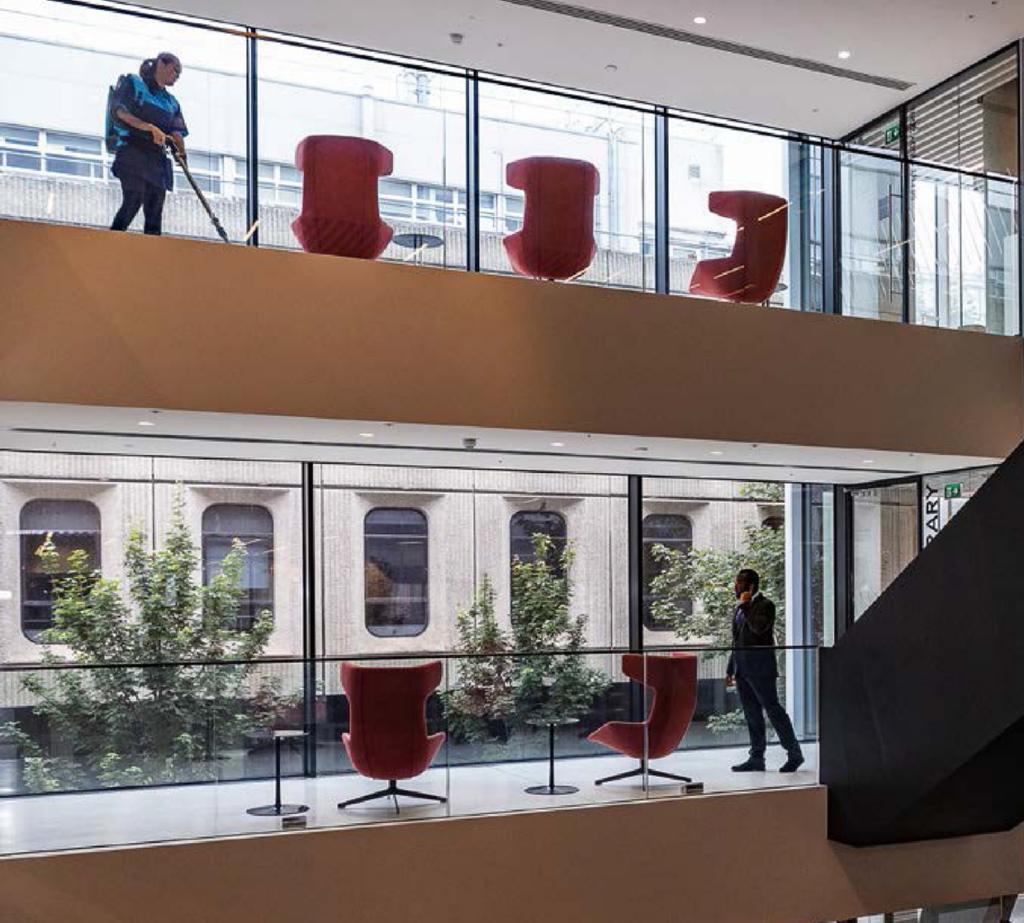
The Evolving Role of Facilities Services
Facilities services teams within universities across the UK and Ireland are earning acknowledgement for their role enhancing the overall student experience.
A key evolution in the role of facilities services is the transformation of campus security.
In many universities security solutions are being reimagined and security teams are being rebranded to reflect a more guardian-like role, prioritising the safeguarding of students. In many universities, security officers are referred to as campus experience officers or campus ambassadors, reflecting a broader and more engaged role. Their role extends to offering advice on personal safety, acting as first responders in medical emergencies, and being a source of information and assistance in various situations.
The significance of these services in contributing to mental health is increasingly recognised. Environments that are clean, secure, and visually appealing play a vital role in mitigating stress and fostering a positive mindset. However, facilities teams are also supporting university initiatives to look after the mental health of students, particularly security officers who keep a watchful eye over students and providing information about ranging from the dangers of intoxication to how to spot the signs that someone is having suicidal thoughts.
Facilities teams shape campus culture and environment, ensuring impeccable order and a welcoming atmosphere. Their efforts impact the overall experience for students, faculty,
and visitors, developing community spirit and mutual respect. During university events, from exhibitions to festivals, these teams collaborate on logistics, event management, and post- event clean-ups, contributing to student unity and a sense of belonging. Teams may also share expertise at events, enhancing student well-being.
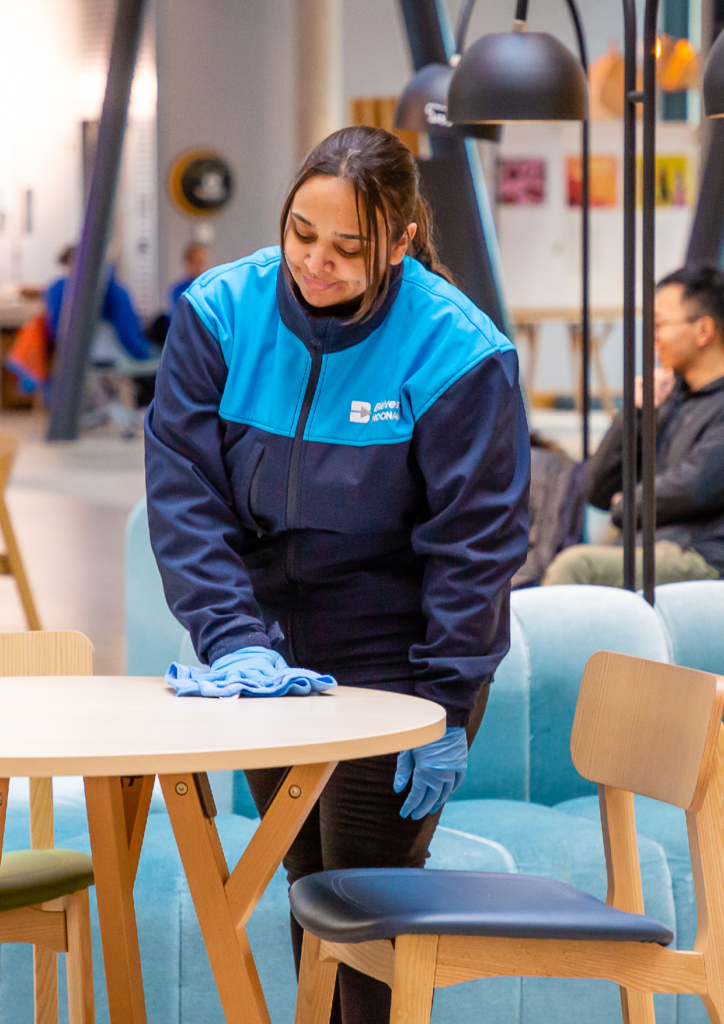
Impact of Diverse and Changing Student Demographics
The increasing diversity of the student body in universities across the UK and Ireland brings with it unique challenges for facilities services leaders. As the composition of students becomes ever more varied, encompassing different ethnicities, faiths, ages, genders, and backgrounds, the need for facilities teams to be both adaptable and inclusive has never been more important.
Facilities teams play a crucial role in facilitating the smooth transition of a diverse student population, including a significant number of international students, into university life.
Facilities teams, especially security officers, are often among the first people a student sees as they arrive on campus, helping to create lasting impressions. Recognising the varied needs and expectations of students—whether first-time attendees or returning mature students these teams provide essential support. International students may find the university experience daunting due to unfamiliar local customs. Facilities teams are instrumental in ensuring their comfort, safety, and overall well-being, addressing both physical amenities and the diverse cultural and personal needs of different student groups.
Facilities teams go beyond managing campus maintenance; they are dedicated caretakers, ensuring a nurturing and inviting environment for students. Today, teams should be recruited and trained to contribute in this way. Their interactions with students should be characterised by understanding and responsiveness, ensuring that all students, irrespective of their background, feel valued and cared for. Our facilities teams on campuses often match the diversity of the students and university staff they serve. Team members come from all walks of life which allows them to more easily relate to others as individuals and as a group.
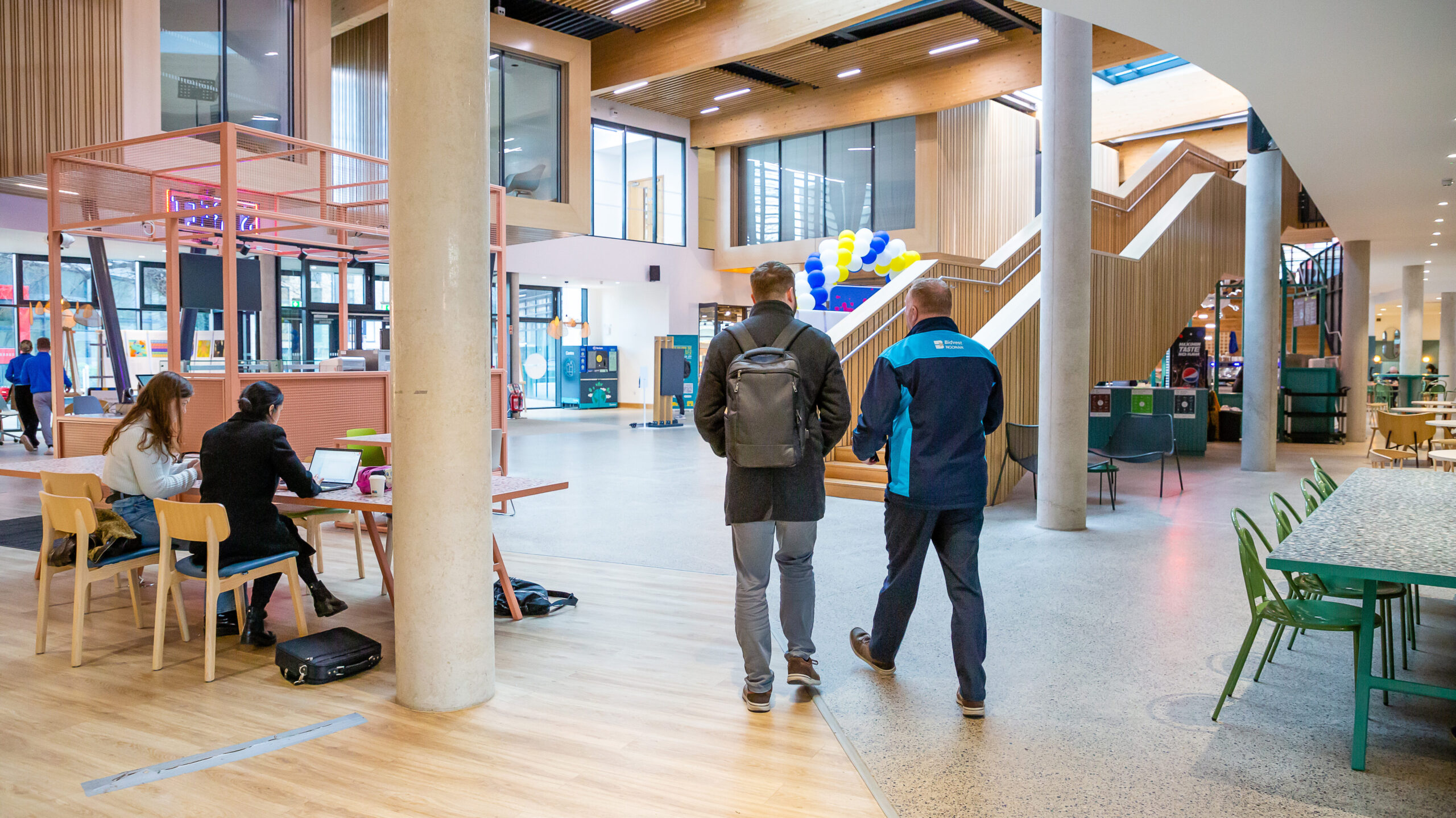
Adapting to Student Needs
Understanding and meeting the evolving needs of students must be central to any strategy. This requires maintaining a continuous dialogue to stay up to date with the needs of students, keeping pace with the changing trends in student lifestyles and learning environments. Students today need and expect more than basic functional spaces; they
need environments that inspire and motivate them. These areas need to be clean, safe, and attractive, enabling collaboration and creativity.
For many, the pandemic highlighted the necessity for clean, decontaminated, and sanitised environments, but in the university sector, there has always been a focus on infection control, with a need to protect students, who meet indoors in large numbers, from common health risks like colds and flu. Cleaning teams in the sector must ensure that cleaning is thorough and ensure that touchpoints are sanitised.
In universities, there are areas that are in constant use such as bathrooms and areas where litter accumulates quickly such as canteens and common areas. In these areas, there is
an increased need for vigilance to ensure areas remain clean and tidy. When students first arrive at university there can be a wave of colds and other bugs. Methodical frequent cleaning can help reduce cross contamination reducing outbreaks.
Universities face unique security challenges, with students, being vulnerable to crime due to the social nature of campus life. Students desire a visible and responsive security
presence, with well-lit and monitored walkways. Security teams must go beyond traditional methods, becoming strategic partners to ensure a safe and enjoyable university experience, responding promptly to emergencies.
In this sector, it is crucial to build strong relationships with blue light services and collaborate closely with policing agencies to mitigate crime around campus.
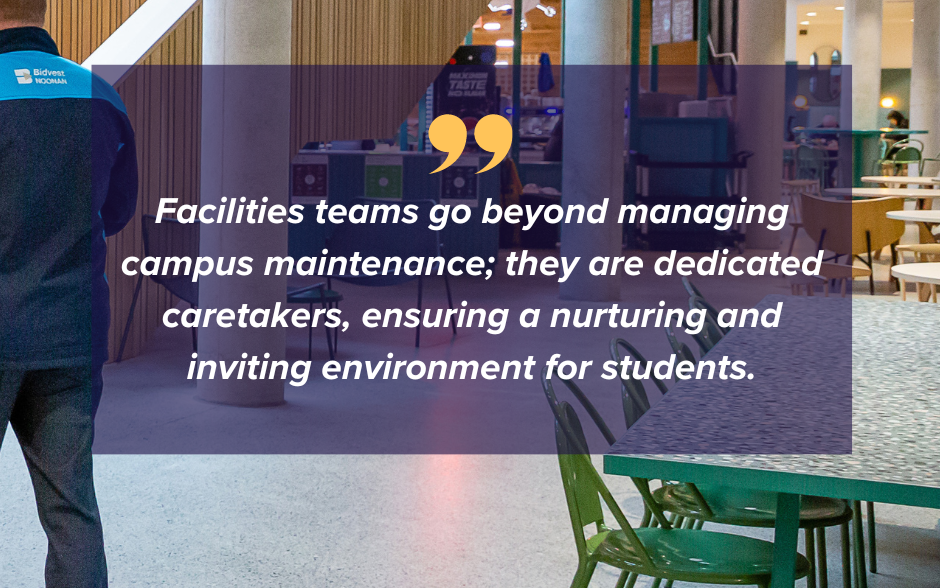
Technology in Facilities Services
Embracing cutting-edge technology is a vital aspect of modern university facilities services. Universities, often regarded as the cradles of innovation and new enterprises, are expected to demonstrate forward- thinking in all areas, including in how their facilities are maintained. Our facilities services teams, by incorporating modern technologies, not only enhance operational efficiency but also inspire the student and educator community.
A prime example of this is the implementation of smart systems that gather real-time data about building usage. This allows our cleaning teams to respond to needs as they arise and provides historical data to optimise planning and resource allocation. This is highly valuable in such large and demanding environments as university campuses. On campuses, it pays to know which areas require servicing in real time and which have been unused. Bidvest Noonan’s dynamic cleaning system, a recipient of the ‘Best Use of Smart Solutions’ award at the European Cleaning and Hygiene awards, is a good example; With the dynamic cleaning
solution, the building activity levels are regularly reviewed, and the cleaning solution is flexed to changes in requirements within a building.
The role of robotics in facilities services has expanded significantly. Robotic cleaners, improve significantly every year. Many of the latest machines are capable of autonomously cleaning large areas. This advancement allows university cleaning teams to allocate more time to complex tasks while ensuring efficient use of resources such as energy, water, and cleaning agents.
Campus security teams enhance safety by integrating advanced technologies like improved camera systems, AI, and smart sensors, such as the halo sensor. Smart software solutions, like digital occurrence logs, enable efficient incident monitoring through visual heatmapping, helping teams identify trends and respond effectively.
Technological advancements are also delivering significant sustainability progress. Innovations like the Comac Inaqua, which recycles water from floor cleaning machines for reuse, and aqueous ozone systems, which convert tap water into effective cleaning and disinfecting solutions, and powerful scrubbing machines which use less energy, water and cleaning chemicals all contribute to more sustainable campuses.
Sustainability and Environmental Practices
Today, universities are highly motivated to integrate sustainability into their campus operations. Environmental stewardship has become a priority in the sector as in many others.
Significant sustainability improvements often come from changing existing processes and procedures rather than solely introducing new equipment or chemicals. This approach can include optimising and resourcing usage, adopting eco-friendly cleaning methods, as well as implementing energy-saving practices.
Awareness programs that focus on issues like waste reduction, energy conservation, and the broader environmental impact can help create a culture of sustainability. To be most effective, facility services teams need to be the drivers of such programs.
We have found that water conservation measures, including rainwater harvesting and water recycling systems, can be effective in reducing the campus’s environmental footprint.
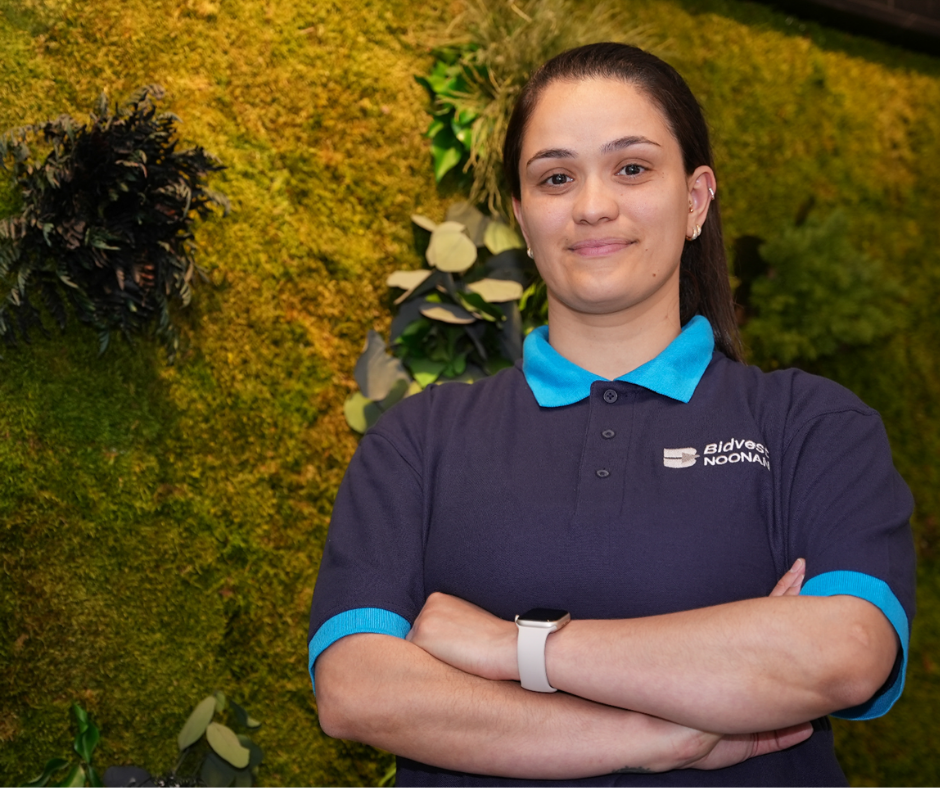
The Future of Campus Facilities Services
As we look towards the future of campus facilities services, it’s evident that the sector is poised for change. This will be driven by technological advancements, evolving student needs, and a continuous push towards sustainability.
The future of the facilities services industry is increasingly intertwined with technology. We’re likely to see a greater adoption of artificial intelligence (AI) and automation in routine maintenance tasks. AI can help predict maintenance needs, thereby reducing downtime and improving efficiency. Similarly, automation in areas like cleaning and landscaping can free up human resources for more complex tasks.
Another trend is the growing use of data analytics. By analysing data on campus usage patterns, facilities managers can make more informed decisions about resource allocation, energy management, and space optimisation. This data-driven approach not only improves operational efficiency but also enhances the overall campus environment.
One of the key challenges in the near future will be adapting to new health and safety standards following the pandemic. This will require innovative approaches to ensure that campuses are not only safe but also conducive to learning and social interaction.
Sustainability will continue to be a major focus area. There’s a growing expectation for universities to lead in environmental stewardship. This involves not only managing resources more effectively but also educating the campus community about sustainable practices.
Another challenge is maintaining the balance between security and privacy. With the increased use of surveillance and monitoring technologies, ensuring that security measures don’t infringe on individual privacy will be crucial.
Educational institutions strive to balance their need to provide high quality facilities with their need to manage costs. They look to their facilities partners for innovative solutions that deliver maximum value, allowing them to preserve budgets for teaching, research, and other core areas.
Despite these challenges, there are ample opportunities for growth and improvement. The increasing focus on student well-being and sustainability presents an opportunity for facilities managers to innovate and redefine what a campus experience can be. By staying ahead of these trends and challenges, facilities services providers can continue to play a pivotal role in shaping the future of higher education environments.
The unity and partnership between universities and facilities teams are the heart of creating an exceptional campus experience. Together, they forge a dynamic and responsive environment that adapts to and anticipates the needs of students.

About the Authors:
Lorraine Monaghan is Director of Operations, Education at Bidvest Noonan. Lorraine has an impressive track record in the education sector, having supported a number of large and prestigious universities. David Everett is a former Deputy Director of Campus Experience& Commercial services at a global top ten University in the UK, with over 25 years of experience, including at Director level, across the UK Higher education sector; Jenny Jones is Director of Operations, Corporate and Public Sector at Bidvest Noonan. Jenny has more than 20 years of industry experience.
60 Seconds with Steve Webb
Our Director of Technology Solutions, Steve Webb, took part in our 60-Second interview series. Steve provided some valuable insights and advice.
How would you define what you do at Bidvest Noonan?
My role as Director of Technology Solutions is to promote and deliver new tech innovations for our customers, particularly with CCTV and Access Control. Much of my focus is on improving how we use electronic security systems. This also includes Intercom, Alarm, and Barriers to more efficiently secure our customers’ facilities.
What has been your best day at Bidvest Noonan?
There hasn’t been just one day, there’s been a few for different reasons. Success with new and current customers using these services is what I enjoy the most and get the greatest satisfaction from as a whole.
What is the best piece of advice you’ve ever been given?
Again it’s difficult to single out ‘the best’ advice but I believe in treating others with the same respect and consideration that we’d like to be given ourselves. These things can go a long way!
Steve, Could you tell us how you motivate yourself?
Motivating others and seeing them go on to great things is motivational. Knowing where I can influence a result is what motivates me.
Who or what has inspired you the most?
Observing those who are less fortunate but have accomplished so much despite their circumstances is always inspirational to me.
If you had a motto, what would it be?
My motto is ‘Honesty is the best practice’.
Setting the standard for security training
Figen Murray, OBE, joined the Bidvest Noonan team at Battersea Power Station to share her expertise and learn about Bidvest Noonan’s advanced security training. Describing Bidvest Noonan’s security strategy as “What the industry standard should be for places where large crowds gather,” she praised the efforts of the team at the Battersea site.
During her conversation with the team, Murray praised the First Person on Scene – International (FPOSi) training and medical strategy after seeing it in action. Provided by medical professionals, this training equips quick reaction teams to assess and treat people suffering from serious medical emergencies. The Battersea team are amongst the few security teams who have received this pioneering training.
Murray told us: “It was an absolute privilege to be shown around Battersea Power Station by Bidvest Noonan. I feel thrilled that a lot of the staff here have undergone the ACT awareness training and that many have also done lifesaving first aid training. The entire management team is deservedly, incredibly proud of what has been achieved so far. The whole complex feels like a living, breathing safe community, where I will have no hesitation whatsoever to bring my family for a shopping trip and meal out.”
Figen Murray is the mother of Martyn Hett, one of the 22 people killed in the devastating Manchester Arena terrorist attack on May 22nd, 2017. Martyn was only 29 at the time. Following the attack, Murray has made it her life’s mission to promote peace and positive change in Martyn’s name. To this day, she has spoken to more than 15,000 secondary school pupils across England to raise awareness, be resilient to extremist influences and encourage them to shape a better world.
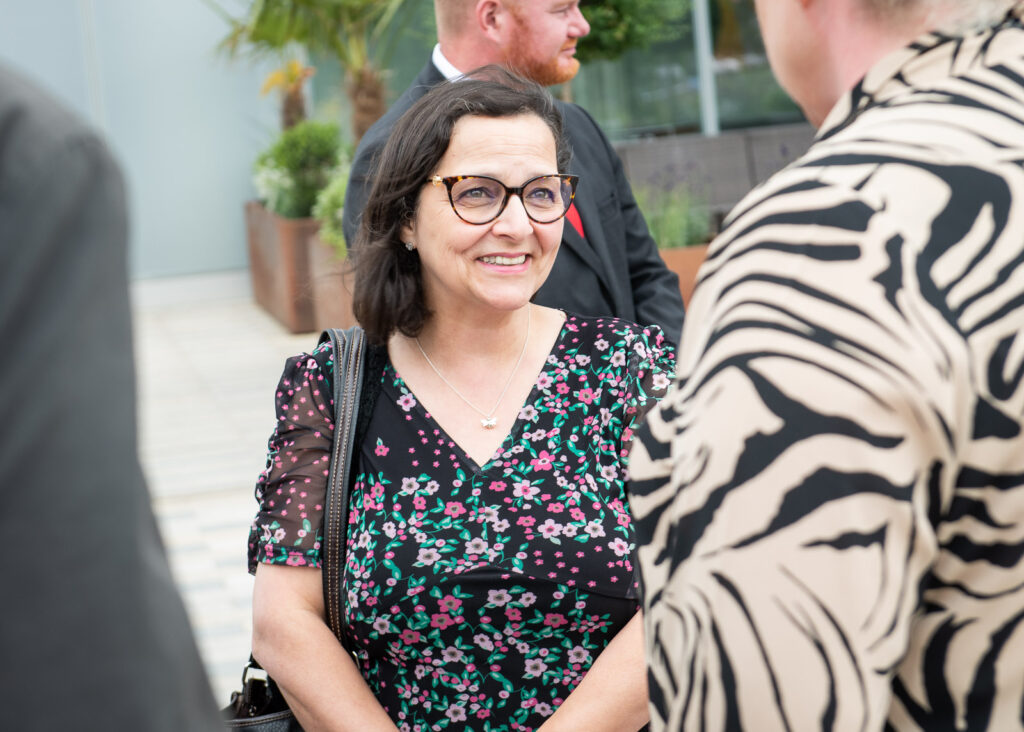
After graduating with a Masters in Counterterrorism in 2021, Murray has been campaigning to legislate security provisions for large group gatherings, labelled ‘Martyn’s Law’. Her dedication and work in counter terrorism saw her awarded an OBE in the 2022 New Year’s Honours List. Murray talked about the Government’s CONTEST strategy to Prevent, Pursue, Protect and Prepare within the context of the proposed Martyn’s Law, and the critical need for dedicated security people and systems in areas where large groups of people gather.
Managing Director, Liz Cummins, commented, “It was a privilege to welcome Figen Murray to Battersea Power Station and hear her speak of Martyn, and how she led the campaign to change legislation to ensure all of us are safer when out at public venues.
The environment we were in as we discussed our own focused approach brought to the fore families, friends and colleagues that we have a duty to protect, and which we continue to do so.
Figen resonated with me more than I could imagine when she spoke of her commitment to creating a kinder society, one that understands how tolerance and understanding has a rightful place over hate and fear. Her focus goes beyond our security industry and reaches out to early years and building resilience and knowledge of threats, both physical and learnt.
I have reflected on Figen’s last message, ‘a small act of kindness offers so much to humanity and society’ – something we all have a duty to act on.’’
Simon Rogers, CEO at Turret Training Ltd said, “The FPOSi trauma course delivered to Bidvest Noonan’s security teams covers everything from minor medical emergencies to multiple casualties with serious injuries. Each Security officer who attends has volunteered and their passion, care and hard work really demonstrates the quality of personnel on the estate.”
Jonny Kempster, Key Account Director at Bidvest Noonan added: ‘’What a pleasure to finally meet with and hear Figen’s personal story and everything she has achieved. It was clear that we are aligned when it comes to safety, security, and trauma response. We look forward to meeting her again soon.’’
Article originally published by the FMJ.

